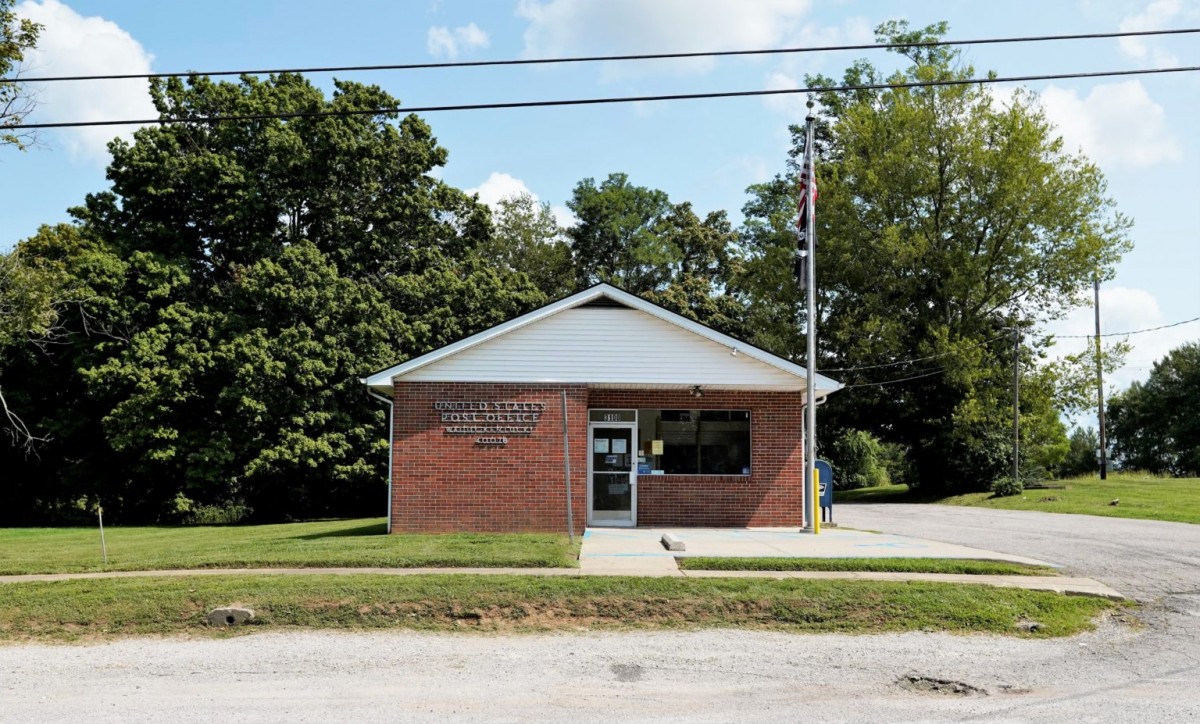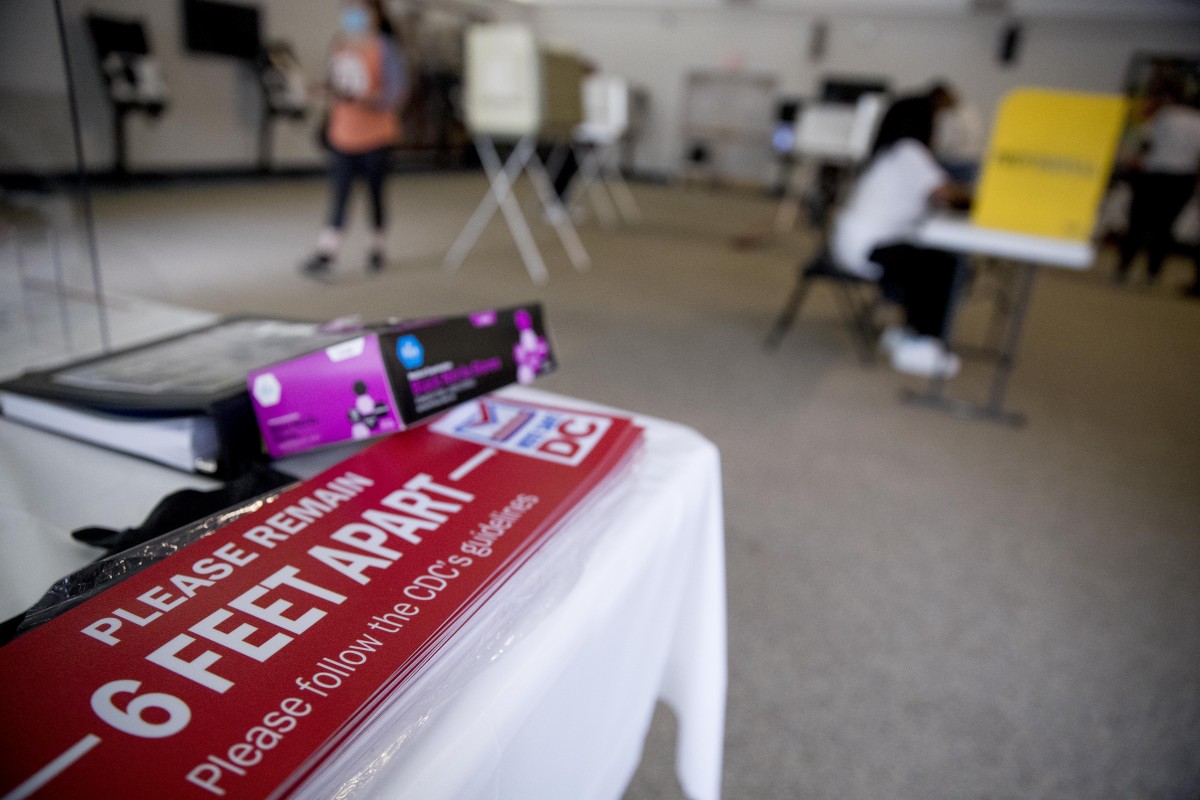Peggy Elkins’ grandkids may be returning to school this week, but life won’t be back to normal.
Elkins, 62, plans to have them take off their clothes and shoes at the door and have hand sanitizer waiting on the porch.
But then again, what is normal, anyway? Is it raising your kids and then sending them off when they turn 18?
Then life hasn’t been normal for Elkins. She raised her kids, and now is raising her daughter’s children.
Elkins, of Summers County, West Virginia, is a kinship care provider. Kinship providers are like foster parents, but related to the children.
Many kinship care providers in Appalachia are grandparents raising grandchildren whose parents died from overdoses or who can’t adequately care for their children while also experiencing substance use disorders.
Elkins is raising her own daughter’s 11-year-old girl and 3-year-old boy. She also lives with and supports her other daughter, who is 41 and has special needs.
In Appalachia, West Virginia is the state where children are most likely to live with seniors over 65, according to a Kaiser Family Foundation analysis. Nine percent of West Virginia’s school-age children live with seniors 65 and older, making it one of the top eight states in the country for percent of children living with seniors. Elsewhere in the region, Virginia also has an above-average rate, at 8 percent.
“These children need the interaction of their peers, and yes, I do worry about them bringing something back to me,” Elkins said. “There’s nobody else in the family that could take care of these children.”
Grandparents Are High-risk
COVID-19 can be fatal to both young and old, but according to the West Virginia Department of Health and Human Resources, as of the first day of school on September 8, 223 out of 250 deaths in the state were people over 60.
As schools prepared to re-open Tuesday, Yvonne Lee, lead social worker for the Healthy Grandfamilies Project at West Virginia State University, was hearing from grandparents with chronic health conditions who are worried about their health and that of their grandchildren.
“It’s going to be like a petri dish for the virus,” she said.
She’s also hearing from grandparents who feel their grandkids need to go back to school.
“They’re scared of the children staying out of school, getting left behind, and not getting the education that they need.”
The Healthy Grandfamilies program employs social workers in all 55 counties to assist grandfamilies. When school starts, the kids may bring COVID-19 back to the grandparents, she noted.
“The grandparents get sick,” she said. “They go to the hospital. They die. You have kids that are in their custody, guess where they end up? In the foster care system, right?” Lee said. “What if this happens to quite a few of our grandparents? We don’t have enough foster homes right now.”
Instead of a return to normalcy in the state’s schools, Lee supports some tweaks.
For instance, she would like to see testing offered to all school children within the first two weeks of school. She suggested that groups of parents/grandparents designate outdoor spaces under tents for at-home learning, where children can more safely socialize – more and more evidence shows COVID is particularly likely to spread in indoor spaces among large groups of people.

But people always need other people for support, even when they’re socially distant. That’s why Lee also supports schools holding classes for one or two days a week then gradually building up to a full week.
“Let’s slow down,” she said. “Let’s take baby steps.”
According to the West Virginia DHHR, seven percent of positive cases have been Black West Virginians. According to the U.S. Census, Black West Virginians make up just 3.6 percent of the total population.
“I’ve been hearing it from African American grandparents, but I’ve been hearing it from grandparents in general,” she said.
Lee said that COVID-19 is not a “black person’s disease.”
“We need to say, no, it’s affecting people that are poor, period, because of their lack of access to medical care,” she said.
Many West Virginians, and others, say they want life to go back to “normal.” But even before COVID–19, when life was “normal,” West Virginians lived with an above-average rate of pre-existing health conditions.
According to the Kaiser Family Foundation, West Virginia has the population most likely in the United States to experience severe complications from COVID-19, with nearly 50 percent of adults at higher risk of developing serious illness. High-risk, according to the foundation, means “older adults (ages 65 or older, rather than 60 and older) and adults between the ages of 18 and 64 with heart disease, chronic obstructive pulmonary disease (COPD), uncontrolled asthma, diabetes, or a BMI greater than 40.”
And state officials have said West Virginia has the highest rate of children in state custody in the nation. According to West Virginia data, in August, about 7,000 children were in custody of the state, many removed from their homes during the overdose epidemic.
Advocate: Kinship Families Left Out of School Discussions
In an August 4 memo, the West Virginia DHHR announced that multidisciplinary teams, which work together to make decisions in the best interest of children who’ve experienced abuse or neglect, would determine whether children in custody of the state should enroll in virtual school, in-person school or homeschool. That means foster and kinship parents could weigh in, but they wouldn’t make the final decision.
“Key participants” in those decision meetings include “biological parents, if appropriate, foster parent or kinship/relative providers, child placing agency case managers, and the child, when appropriate,” the memo said. It added that the team should consider the educational needs of the child and foster families’ ability to accommodate the school option chosen.
But according to Marissa Sanders, director of the West Virginia Foster, Adoptive & Kinship Parents Network, foster and kinship parents are often left out of those meetings.
“Whoever is providing the care for the child is the one accepting the risk, whether that’s a risk of loss of income or a risk of exposure to COVID,” she said.
Her group surveyed foster, adoptive and kinship families last fall and a third of about 1,000 respondents said they’d been left out of MDT meetings.
“In some counties, what often is counted is a couple of attorneys and a CPS worker standing in the back of the room,” she said.

Sanders also said trying to convene thousands of meetings in a month was “not very realistic.” As of late August, she said many families had yet to hear of a scheduled MDT meeting, some had occurred without foster parent input and at least a handful of children had been displaced.
“There are a lot who are afraid that they’ll be forced to send the child to school when they have someone who is high-risk [at home],” she said. “There are a lot who are afraid they’ll be forced to keep the child home when they need to work.”
“There are also a lot who are afraid that they’ll be forced to do something different with the foster child than with their biological children,” Sanders said, “and that sends some difficult messages to a child who’s in foster care. If I’m keeping all my biological children home, but I have to send the child in foster care to school, what does that say to them? It’s OK if you get sick?”
During a COVID–19 briefing last week, state officials indicated there were no plans to change the process.
West Virginia DHHR Secretary Bill Crouch said state officials chose to let multidisciplinary teams make the decision so that “all individuals working in the best interest of the child could be heard.”
He said, as an example, if the MDT chose virtual school and the foster parent could not provide it, the team would identify a “supportive adult” who could help.
“The goal is to ensure that the foster parents’ education needs are addressed and resources identified to ensure they have what is needed to be successful,” Crouch said. “We’ve gone through this process now for several weeks and have had very few problems with the process.”
“Children Need Something to Look Forward To.“
State officials determined that COVID-19 infection rates were low enough for kids to go back to in-person school in Summers County this week, but Elkins said her family had already been preparing.
Her 11-year-old granddaughter has been clear that she wants to go back to school. She misses her friends and playing volleyball, basketball and baseball.
“Now if my granddaughter had said, ‘No I’m scared to go back,’ no, I wouldn’t have sent her, but she wanted to go,” Elkins said.
Elkins had wanted to do virtual learning, even though she said it was difficult helping the 11-year-old with her assignments even before COVID-19.
“[It] has changed a lot since I was in school,” she said.
As of late August, she said there’d been no MDT meeting for her granddaughter. And while she has great appreciation for her state child protective services caseworker, Elkins said sometimes she doesn’t get invited to participate in those meetings, which she said are recently done by phone.
“They may call me next week and say they’re going to have one but they haven’t had one yet,” she said.
Adjusting to preschool with new safety precautions may be hard for her 3-year-old grandson, Elkins said.
“It’s not hard for him to wear a mask, because if I take him grocery shopping or take him to Walmart or something with me, he keeps his mask on,” she said. “He’s got it down pat, now let me tell you. You explain to them that it’s not for their safety, it’s for other people’s safety.”
But it may be hard, she said, because he’s very loving and affectionate.
“He thinks he can hug everybody and likes to give kisses,” she said.
Children need some level of normalcy, Elkins said. Especially children whose lives have already been unstable.
“I just hope the kids don’t go back to school for a couple weeks then get pulled out because that’s gonna upset a lot of children,” she said.
First, her grandchildren were removed from their mother. Then they were pulled out of school in March. Her grandkids also don’t know if they’ll reunite with their mother, although they do visit with her. And their next court date isn’t until October.
“Children need something to look forward to,” Elkins said. “I’m not talking just about the two that have been traumatized – and they have been traumatized – I’m talking about all of the children. They have to have hope.”
Her grandson interrupts the phone call to tell her that he’s happy and gives her a high-five.
“These kids didn’t ask to be brought into the world,” she said. “They oughta be put first.”
Erin Beck is a West Virginia journalist and poet. After earning a bachelor’s degree in journalism and a master’s degree in public health from West Virginia University, she wrote for The Exponent Telegram, The Charleston Gazette, The Charleston Gazette-Mail and The Register-Herald. She frequently writes about trauma, addiction and inequity, as well as healing, hope and resiliency.



